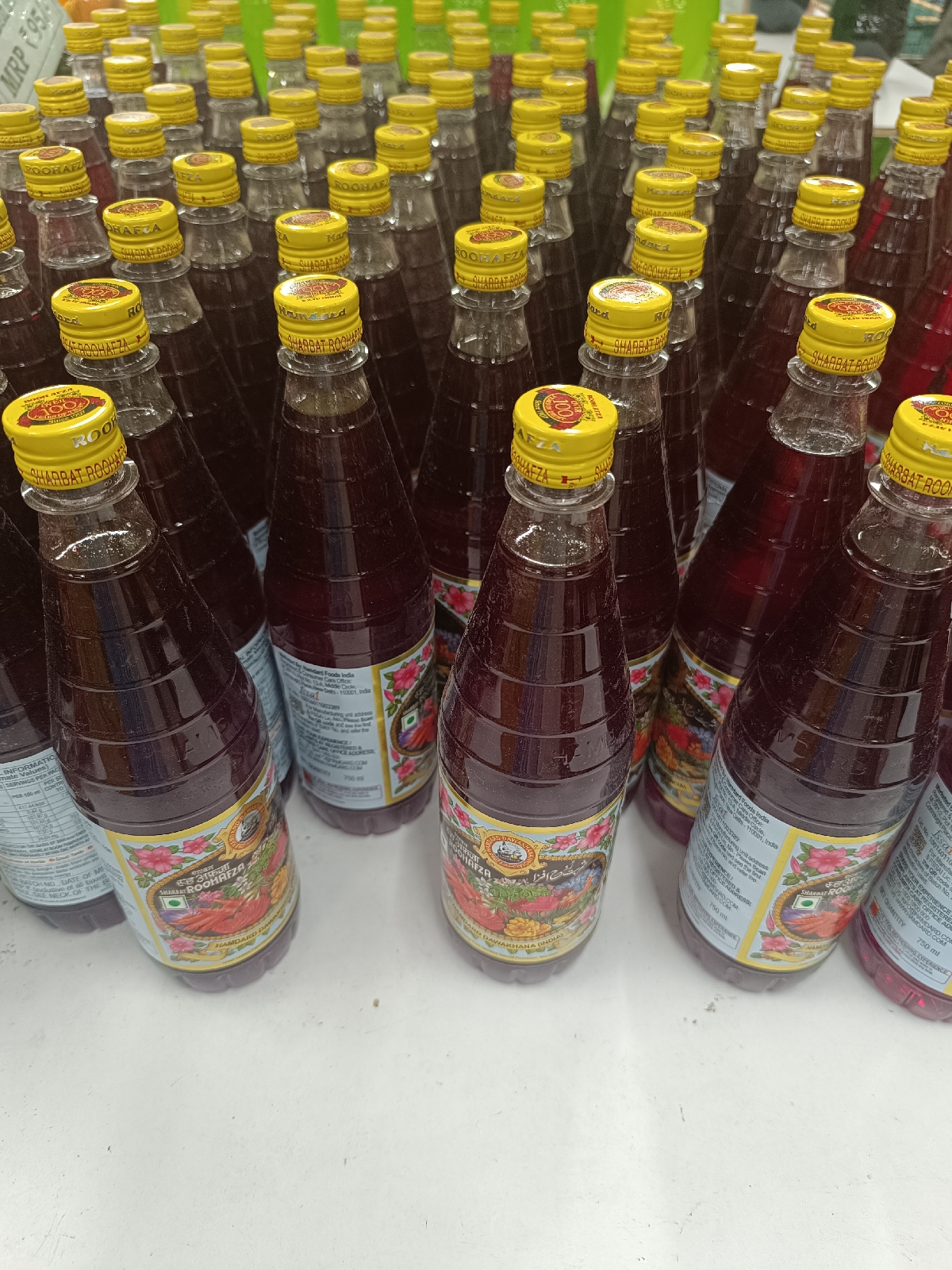There’s a war brewing in your fridge—and it’s not just about taste. As Indian temperatures rise, so does our thirst for nostalgia in a bottle. Enter Rooh Afza, the century-old rose-hued classic, and Patanjali Sharbat, the Ayurvedic challenger. But beneath the branding, the herbal claims, and the colorful labels lies a sticky truth: you’re mostly drinking sugar.
Let’s talk wellness. Let’s talk science. Let’s talk about what these drinks are doing to your body—because sweet doesn’t always mean harmless.
The Sugar Load Nobody Talks About
Here’s a number that might make you put your glass down: Rooh Afza contains up to 58% sugar. One glass can shoot 20–25 grams of sugar straight into your bloodstream. Patanjali’s variants may wear the Ayurvedic halo, but most are no better in this department—again, sugar takes center stage.
The World Health Organization recommends no more than 6 teaspoons (25g) of added sugar a day. If you’re sipping these syrups regularly this summer, you’re blowing past that limit in one go.
Let’s be blunt: overconsumption of added sugars is a fast track to:
Type 2 diabetes
Heart disease
Liver damage
Belly fat
Chronic fatigue
Even premature aging of your skin
Sugar is not just a “calorie problem”—it’s a metabolic bomb.
Herbal? Natural? Questionable.
Rooh Afza promotes ingredients like rose, kewra, and mint. Patanjali mentions tulsi, ashwagandha, and more. Sounds healthy? Maybe. But in syrup form—loaded with sugar and preserved for months—the nutritional value of those herbs is negligible.
Think about it: Ayurveda doesn’t recommend gulping down 4 tablespoons of sugar-laden syrup to access tulsi. We’re romanticizing ancient wellness while modern industry dilutes it.
Better, Smarter Alternatives
The good news? India has always had truly healthy, hydrating drinks—we just forgot them somewhere between television ads and supermarket shelves.
Chaach (buttermilk): Probiotic, cooling, and great for digestion.
Aam Panna: Made right—with mint and raw mango—it can hydrate and detox.
Sattu Drink: High in protein, low in sugar, and a rural superfood.
Lemon Water with Rock Salt: Vitamin C + hydration, no nonsense.
These aren’t just drinks. They’re functional beverages before the West coined the term.
The Bottom Line
It’s time to stop confusing taste with health and branding with wellness. Whether it’s Rooh Afza or Patanjali, a drink that’s nearly 60% sugar is not doing your body any favors.
Drink it if you like it—no shame. But don’t fool yourself into thinking it’s good for you just because it says “herbal” or “heritage” on the label.
In a world where every brand is shouting “health,” the real wellness begins in reading the label, not the marketing.
